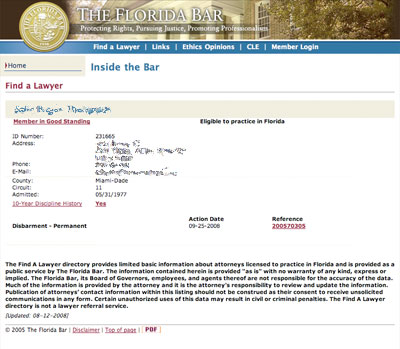New York Times: Can a Sandwich Be Slandered? Some companies have made a sport of using advertising to bash a competing brand: Pepsi and Coke, Colgate and Crest, Miller Lite and Bud Light. It was a rivalry of this sort that compelled Quiznos, the toasted-sandwich chain, to invite the public to submit homemade commercials in a contest intended to attack a top rival, Subway. . . . Subway promptly sued Quiznos and iFilm, the Web site owned by Viacom that ran the contest, saying that many of the homemade videos made false claims and depicted its brand in a derogatory way.
Where is tort reform when you need it? I think Chef Gordon Ramsay would be the ideal expert witness in this battle royale between sandwich chains. He is always insightful and entertaining. I’m no chef, but I’ve had enough sandwiches over the years to be able to tell the difference between a good sandwich and a bad one. My preference is Quiznos, Togo’s and Subway, from most favorite to least favorite.
Quiznos offers the best-tasting sandwiches. Their meat looks and tastes like real meat with excellent flavor and texture. Even their greens are better. Sauteed onions or the same-old shredded lettuce and tomatoes combination? No comparison. Subway must be feeling the heat because they now offer toasted sandwiches. However, while the bread is warm and crunchy, the fillings are just the same.
I like Togo’s. However, I have stood in line on more than one occasion saying (to no one in particular) that I wished Togo’s had toasted sandwiches. Usually, it comes down to how far I want to travel and how much change do I have in my wallet. Sure, Quiznos offers the tastiest sandwiches, but their sandwiches cost a pretty penny.
